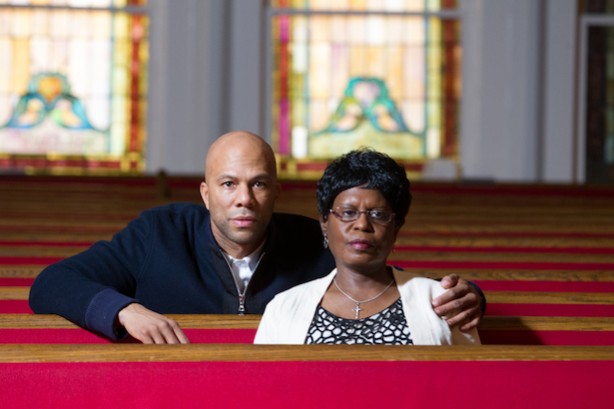Behind-the-scenes perspectives on the making of Outside the Lines Special Report

At the top of last night’s ESPN telecast of Outside the Lines Special Report: The “N” Word, rapper/actor COMMON delivered a powerful introduction. The pre-produced feature was written by ESPN.com and ESPN The Magazine senior writer Wright Thompson and featured an appearance by Birmingham, Ala. church bombing survivor Sarah Collins Rudolph.
Sharon Matthews of ESPN’s Features Unit produced the segment. Matthews also worked with COMMON during ESPN’s 2013 Content of Character Martin Luther King Day special.
Matthews has monitored the social media landscape for reaction to the introduction and the overall program, which examined the “N” word, its history and also featured a live discussion.
“The reaction has been overwhelming. People who are touched emotionally, and those who remark at [the OTL program’s] power and strength humble me,” Matthews said. “I couldn’t have been prouder to be a part of this project.”
Matthews also hailed the teamwork involved in tackling a difficult subject.
“I got a sense of pride from everyone involved,” she said. “[On the introduction] Wright Thompson gave us a remarkable script with an incredible amount of detail – that became a perfect palette to the message regarding the history of the word and what that world looks like. And Dale Mauldin [coordinating post production editor] helped us tremendously in the edit suite to make sure we were keep the authenticity of the story visually.”
Via associate producer Kris Kugler, Front Row submitted questions to Rudolph regarding her thoughts on the OTL special’s subject matter.
What does it mean to have ESPN involved in the discussion surrounding the “N” word?
The use of the “N” word is offensive to the people who were in the struggle during the 1960s era. It’s good to know ESPN is doing this because many young people really need to know that the “N” word is not a good word and it shouldn’t be spread around in songs, in conversations and also in our way of life. It shouldn’t be done because it is very offensive.
How do you think this helps educate a generation of people born after the 1960s civil rights movement?
They need to know that during that time people suffered – [civil rights activists] Martin Luther King, Fred Shuttleworth and Ralph Abernathy – they struggled and suffered. They did it all for a reason, to get our civil rights, to make it known that we need our civil rights. The [Ku Klux] Klan looked at us as being nothing, but we are something and it’s awful that now the word is used among young people because it wasn’t used then as something “nice.”







